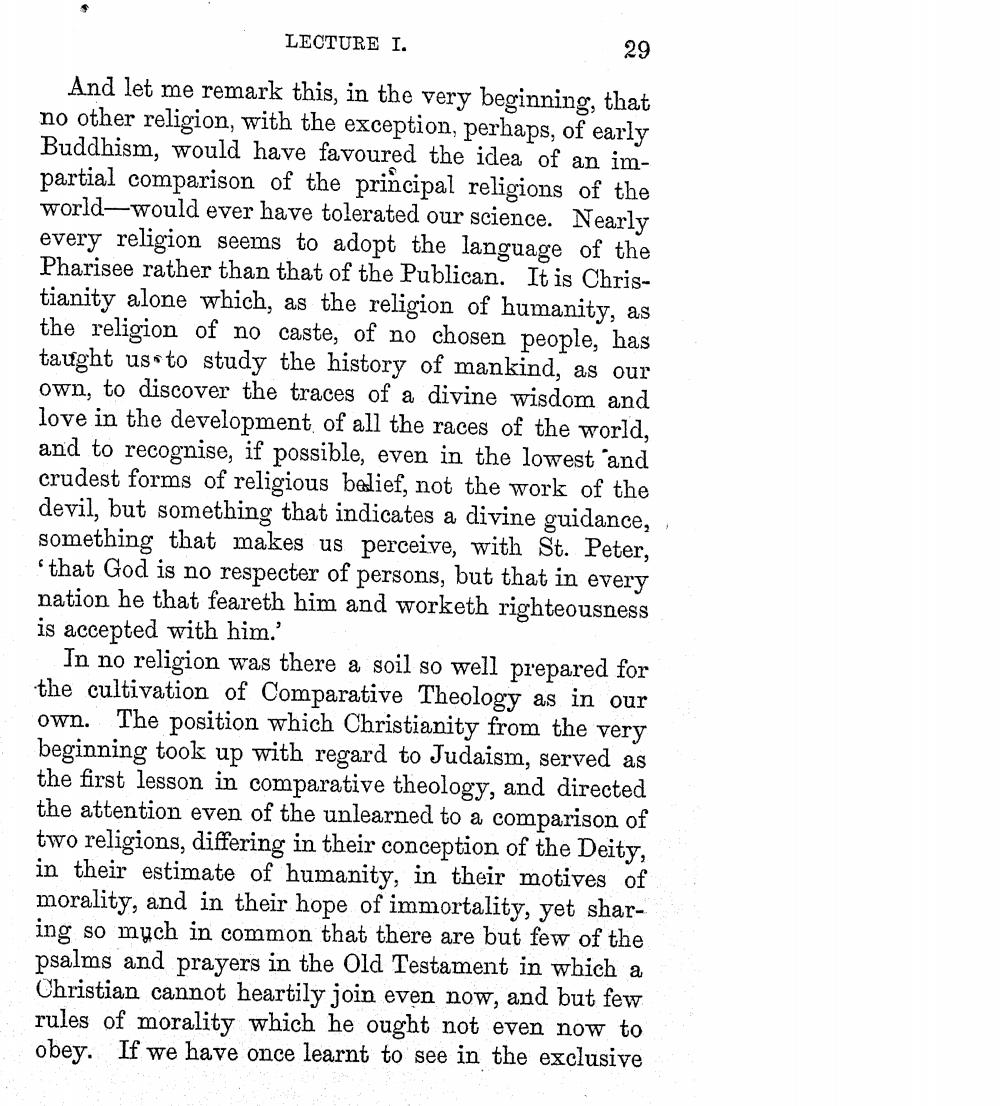________________
LECTURE I.
29 And let me remark this, in the very beginning, that no other religion, with the exception, perhaps, of early Buddhism, would have favoured the idea of an impartial comparison of the principal religions of the world-would ever have tolerated our science. Nearly every religion seems to adopt the language of the Pharisee rather than that of the Publican. It is Christianity alone which, as the religion of humanity, as the religion of no caste, of no chosen people, has taught us to study the history of mankind, as our own, to discover the traces of a divine wisdom and love in the development of all the races of the world, and to recognise, if possible, even in the lowest and crudest forms of religious belief, not the work of the devil, but something that indicates a divine guidance, something that makes us perceive, with St. Peter,
that God is no respecter of persons, but that in every nation he that feareth him and worketh righteousness is accepted with him. I
In no religion was there a soil so well prepared for the cultivation of Comparative Theology as in our own. The position which Christianity from the very beginning took up with regard to Judaism, served as the first lesson in comparative theology, and directed the attention even of the unlearned to a comparison of two religions, differing in their conception of the Deity, in their estimate of humanity, in their motives of morality, and in their hope of immortality, yet sharing so much in common that there are but few of the psalms and prayers in the Old Testament in which a Christian cannot heartily join even now, and but few rules of morality which he ought not even now to obey. If we have once learnt to see in the exclusive




